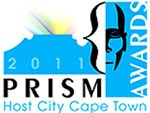Improved judging system
The improved judging system, which splits the entries in the 26 official categories into three clusters, sees a chief judge and five additional judges reviewing each entry, a significant improvement from the two judges on each entry in previous years. Richard Linning, International Public Relations Association (IPRA) president, gives an international perspective to the judging process.

Daniel Munslow, one of the three chief judges for the 2011 Prism Awards.
Daniel Munslow, a chief judge on one of the entry clusters and involved in driving the changes at the Prism awards, says more people judging, and judges with greater expertise in the categories they judge, mean better debate and more credible winners. Entrants will also have access to judges' comments on their submissions, should they request it.
So far the changes seem to be having the desired effect - entry numbers nearly doubled from last year to 166 this year.
In a bid to engage the broader industry, entrants have also been uploaded onto the Prism award site for peer review. This review does not influence the winning entries, though.
Rate on five specific points
The judges rate work on five specific points, namely research, objectives, planning, execution, and measurement. Munslow says entrant submissions in background research and measurement sometimes fall short but that this is improving.
The entry requirements were changed last year to force entrants not to use multiplying factors (such as prominence, prestige of the media channel etc) with the Advertising Value Equivalent (AVE) measurement method (which compares the cost of a paid advertisement with the same amount of space or airtime of an unpaid publicity item) for submissions. Only a direct 1:1 comparison of value can be used by entrants, in line with international standards.
Munslow says the media relations, social media and 2010 FIFA World Cup categories were particularly popular this year. An increase in submissions in the CSI and NGO categories show the early impact of the King III code of governance and the new companies act. Munslow says he would have liked to see more entries in the Public Affairs and Healthcare categories.
Standalone entity
The Prism awards are being organised by the Public Relations Consultants' Chapter (PRCC) of the Public Relations Institute of South Africa (PRISA) and it is shifting its brand message towards that of a standalone entity and away from the very close association with PRISA the awards held in the past. While PRISA still backs and endorses the Prism awards, the awards itself is now significant enough to stand on its own, says Munslow.
Winners will be announced at a gala event at The Vineyard in Cape Town on Thursday, 24 March 2011, and visitors to the city can experience a number of events and functions organised by the awards committee over the weekend.
For More list updated at 12.16pm on 24 March 2011.



































